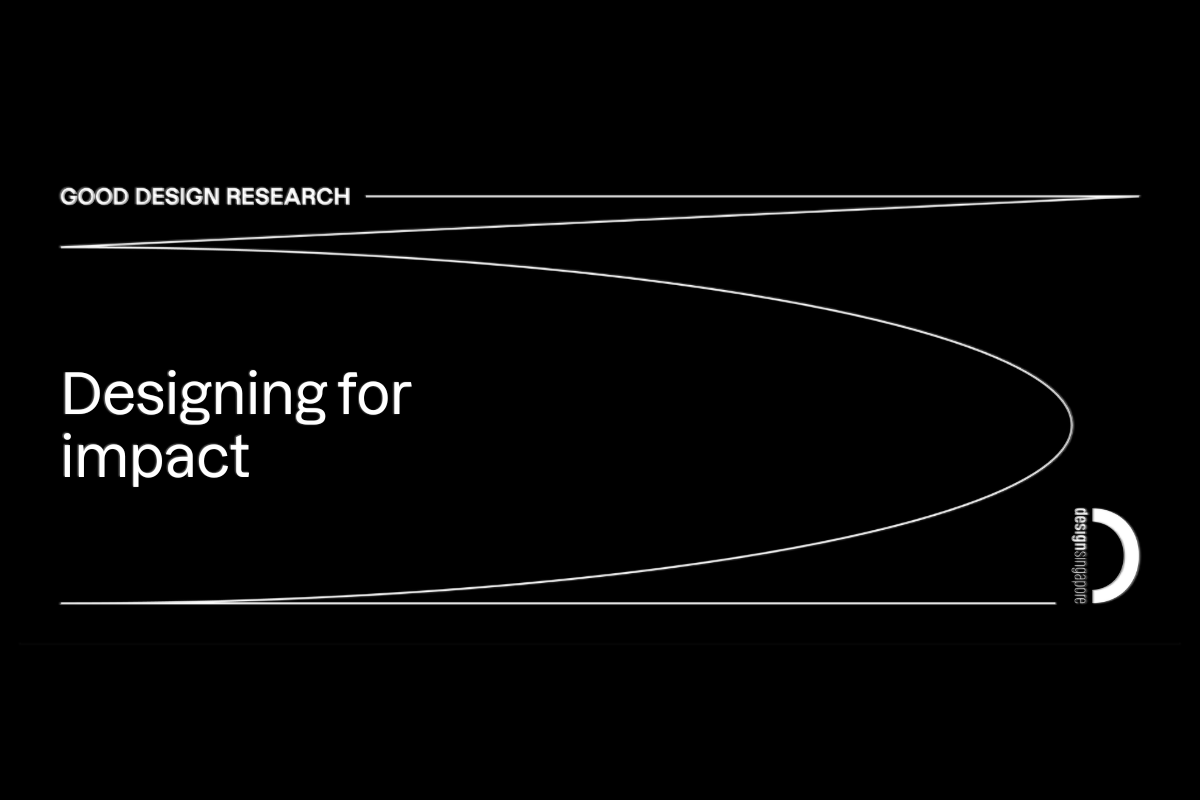Using empathy to design a heavenly experience for toast and coffee lovers
When Wang Café was acquired by NTUC Foodfare, its new owner discovered that rapid expansion had led to inconsistent service and quality levels across its 30 outlets. The brand engaged The Curious People Solutions, a business design thinking consultancy that used empathy to change employees’ mindset to transform customer experience and ultimately achieve service excellence. The result: revamped customer-centric service standards, greater productivity, heightened marketing efforts to engage existing and new customers from the millennial generation, more engaged staff, and even a new spin-off brand Heavenly Wang.
Challenge
Many Singaporeans are familiar with Wang Café, a popular coffee and toast chain in Singapore. It started out in 1953 as a corner coffee shop along Bugis Street. In 2006, a pair of entrepreneurs bought over the fourth-generation family business and rapidly expanded it into a thriving business with outlets all across Singapore.
Five years later, the business was once again acquired – this time by social enterprise NTUC Foodfare that saw the brand’s potential to attract and serve the sizeable and growing PMET (professionals, managers, executives and technicians) market.
Although the brand was highly popular, the new owner discovered that Wang Café’s rapid growth had resulted in inconsistent food quality across its 30 outlets.
Something had to be done as “we couldn’t have our customers experience and taste coffee in one way at one outlet, and experiencing another taste at a different outlet” said Foodfare’s Chief Executive Officer in a previous interview with BrandzAsia.
Process
To this end, Wang Café embarked on a 18-month consultancy project for service excellence, leveraging on Enterprise Singapore’s Capability Development Grant, with design thinking consultancy The Curious People Solutions (TCPS).
The journey started with an empathy study to uncover new knowledge about their customers’ needs. Using its proprietary Design Thinking 3Ts Empathy Toolkit, TCPS approached customers to describe their dining experience at Wang Café through photos and stories. They gathered 283 photos and 886 customer point-of-views from the mystery audits.
Together with Wang Café’s management, they clustered and sequenced the photos to form a visual chart of a customer’s experience journey map – an approach that truly allowed the management to walk in the shoes of the customer. This revealed the impactful touch points and opportunities that Wang Café could focus on to optimise customer satisfaction.
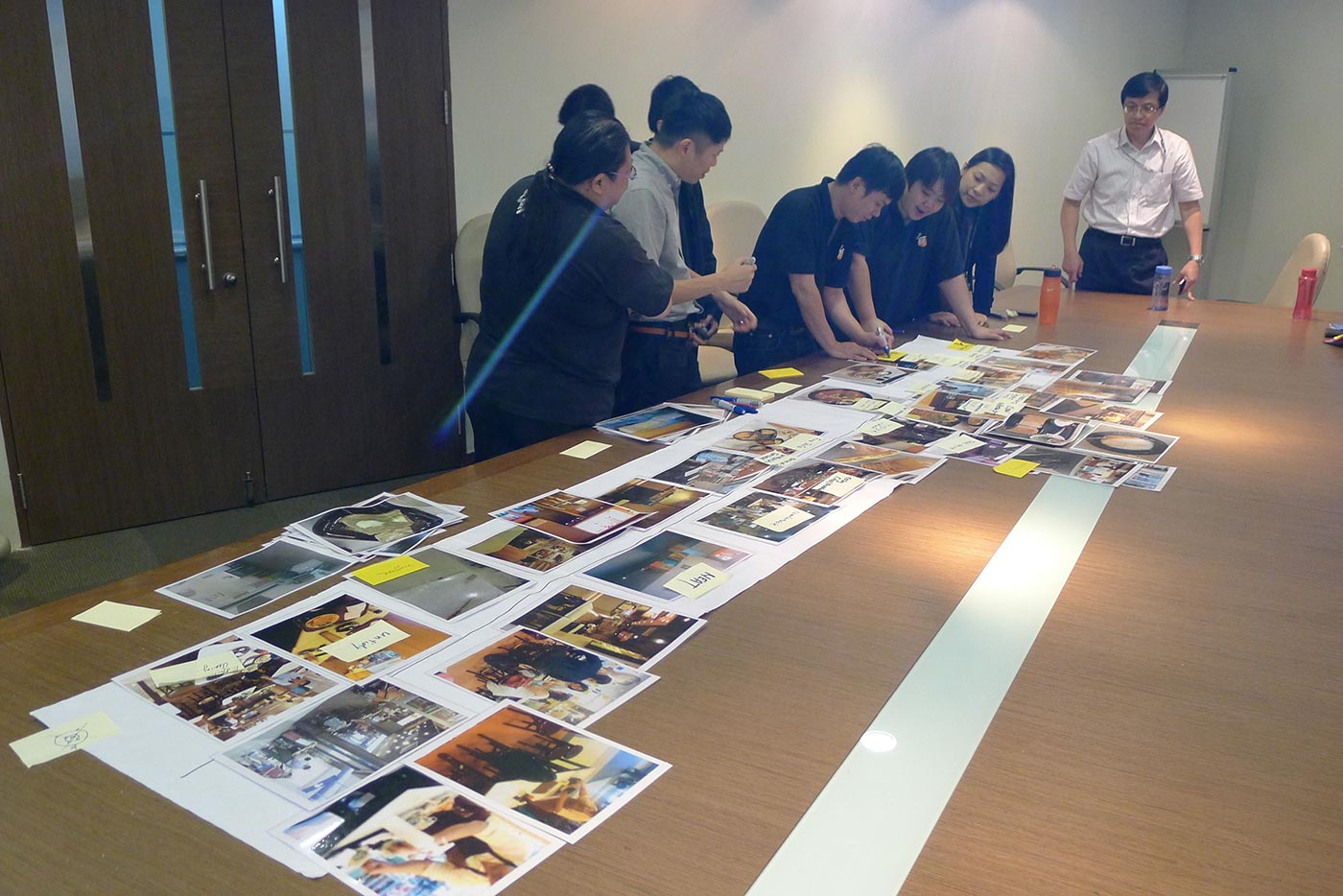
Co-creating a service blueprint
Using the journey map and photos, TCPS held a number of co-creation exercises with 136 frontline staff to formulate new standard operating procedures (SOPs) and service standards.
The exercise enabled staff to develop greater empathy for customers as this was the first time they “saw” Wang Café through their customers’ eyes.
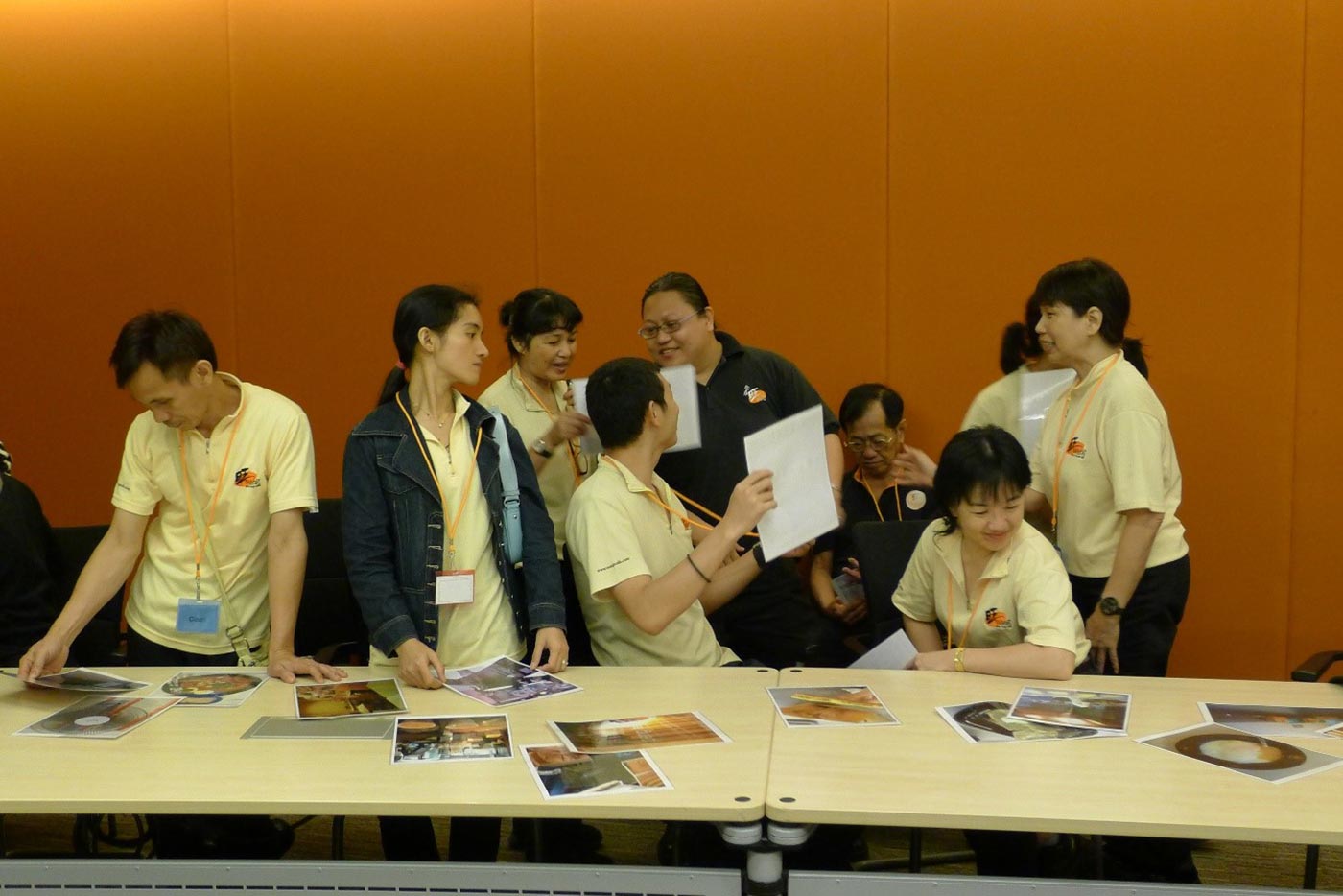
For instance, a customer snapped a photo of a waste bin and goods trolley placed right smack in the middle of the café, and said, “I come to your café and you greet me with this… things like these should not even be seen at all.” Staff were surprised and did not realise that the items – placed there for convenience – would affect one’s dining experience.
Their input formed the basis of a new Service Blueprint, co-drafted by Wang Café’s management and TCPS, to overhaul SOPs so that customers could experience consistent food and service quality across outlets. This bottom-up approach greatly encouraged staff buy-in and adoption of the newly created processes.
From insights to workable ideas
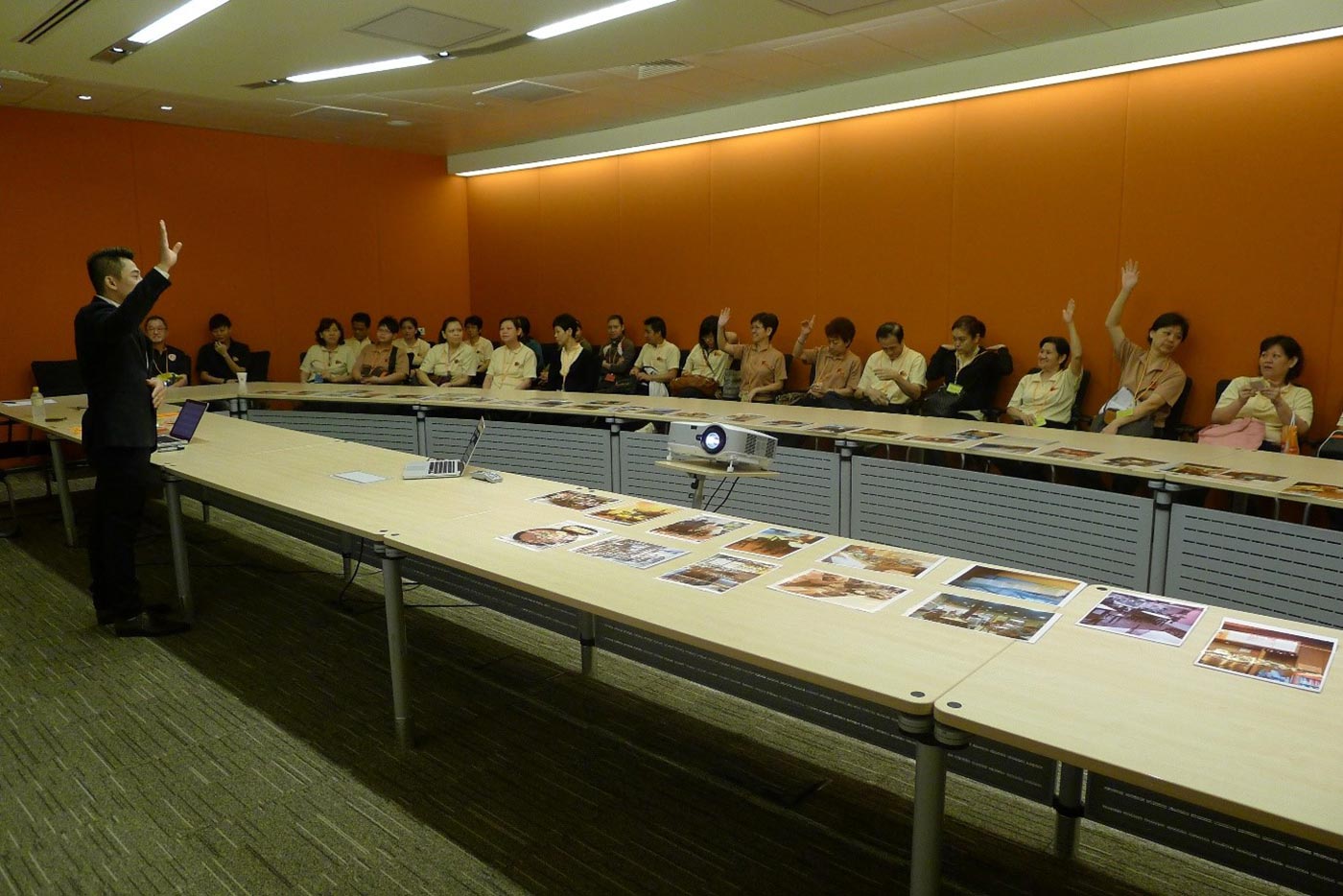
From the empathy study, TCPS distilled insights and identified common customer needs. A multi-disciplinary team (consisting of Wang Café senior management, outlet staff, IT team and even actual customers) was then assembled to brainstorm, prototype, test and refine solutions to improve customer experience.
A key shift was the adoption of technology to raise service standards and productivity, like a self-ordering kiosk that could also be an IT platform to collect customer intelligence via its new loyalty programme. On the back end, they introduced an integrated ordering system for suppliers to ensure timely delivery of products in the right quantities so customers will never be disappointed by “food running out”.
The idea for the self-ordering system was prompted by a key customer need “to get my food promptly”. There was also potential for the system to meet other customer needs such as:
- “I need efficient order taking”
- “I need enticing food photos”
- “I need reasonably priced food or drink”
- “I need variety in food offerings”
The system had the potential to do the following:
- Alleviate queue situation at the cashier’s
- Eliminate errors as customers could check their orders immediately.
- Orders would be sent electronically to the kitchen, streamlining the service further.
- Customers could order easily by viewing high-quality food photos that could be updated as often as required.
- Collate customers’ F&B preferences through the loyalty programme.
Over time, the system would give more accurate data on food preferences, sales and ordering patterns during the day and across different days of the week. This would enable management to plan for the right variety of offerings and to update the menu based on changing tastes.
As the idea could meet six clusters of needs, high-resolution prototyping (a prototype built to look and function closely to the final product) was approved, and a first-generation self-ordering kiosk was placed at an outlet for both customers and staff to try out.
The reception from customers was positive and their feedback taken to iterate and refine the prototype before it was implemented across 30 outlets in 2014. Wang Café’s bold adoption of technology would be at least four years ahead of its competitors.
Insights informing marketing efforts
TCPS’ in-house team of research analysts also conducted a netnography study (a branch of ethnography that analyses online behaviour) to understand how customers were interacting with Wang Café and its competitors – Toast Box, Ya Kun Kaya Toast and Killiney Kopitiam.
They found that Wang Café’s social media engagement with customers was perceived to be much lower compared to Toast Box. Younger customers cited social media as a main source of information and an essential platform for engagement.
Combining these insights with what they had learnt from the empathy study, Wang Café’s marketing team was able to formulate more impactful strategic social media campaigns to engage its existing customers more effectively, while reaching out to new customers from the sizeable millennial generation.
A new spin-off
The empathy study also revealed opportunities for Wang Café’s management to build on the brand.
Through their stories, customers had articulated the environment they desired, e.g. “a blend of art and food”, “decorated with vintage photos and items”, and “appropriate space for customers to preserve privacy”. They preferred a distinct thematic “environment” the likes of those that can be found at some of Wang’s competition.
These qualitative inputs revealed three key customer needs: a) a need for well-designed spaces; b) a need for comfortable seating areas; and c) a need for organised and clean environments. Customer needs were clearly shifting towards a better ambience and greater comfort.
On top of these insights, it was observed that coffee and toast cafes in Singapore were inaccessible to the sizeable Malay Muslim population.
These inputs led to the creation of a spin-off – Heavenly Wang – to offer a Halal range of Wang Café’s signature food and beverages. The new brand would also boast well-designed spaces that reflect a distinct personality and offer an ambience that the younger customer segment would find attractive.
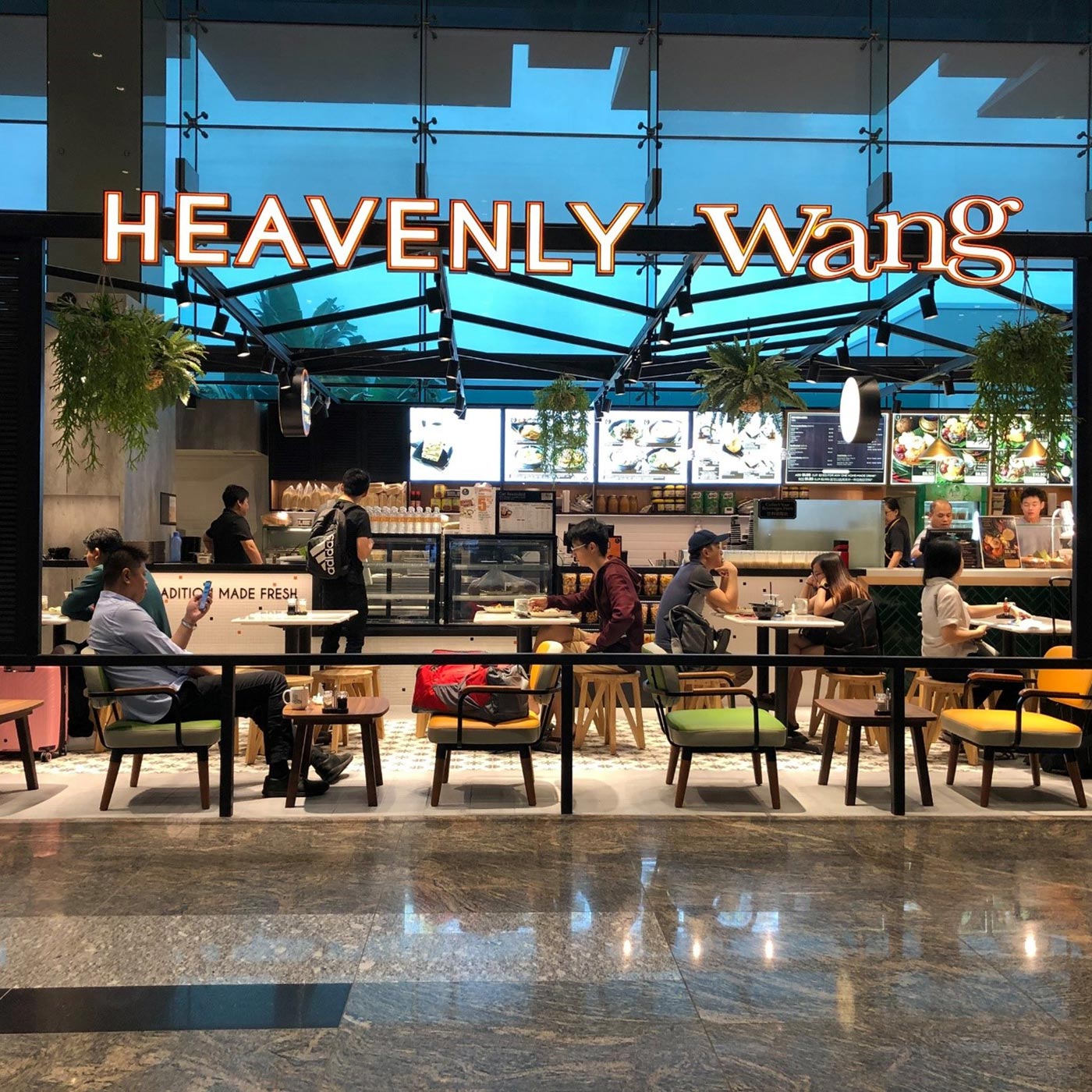
Outcome
The result of the 18-month project was significant with sales performance across Wang Café outlets growing by 20%.
The overhaul in SOPs led outlets to achieve 100% service recovery within 48 hours even when service responses rose 3.2 times. There was also a 433% increase in average training hours per employee, enabling staff to develop confidence and deliver higher quality service.
Customers were happier and more loyal as a result. A comparison of pre- and post-project surveys showed an additional 11% of customers more willing to recommend Wang Café than its competitors. The improvements in food, service and environment also achieved a 90% customer satisfaction rate. The number of complaints dropped too, with compliments now outweighing complaints by three times.
Even more encouraging was the 60% reduction in staff attrition, compared to pre-project measurement.
In an employee engagement survey conducted after the project concluded, Wang Café exceeded the targets set on 93% of all dimensions. These included degree of clarity of company vision, adoption of company’s values at work, communication with superiors, training to perform job effectively, and willingness to go the extra mile to help the company succeed.
Having leveraged empathy and design thinking, Wang Café is now more profitable, with happier and more loyal customers, as well as engaged employees, which culminated in the company achieving the Singapore Service Class.




